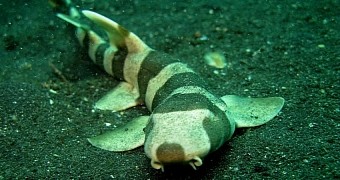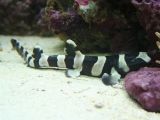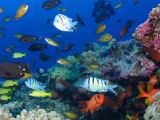If we’re going to be honest here, it must be said that sharks aren’t exactly everybody’s favorite animals in the whole wide world. Kittens, puppies, panda bears and koalas are definitely cute and cuddly. Sharks, on the other hand, not so much.
However, this does not change the fact that, being the apex predators that they are, sharks help maintain aquatic ecosystems and that, were they to one day simply vanish, our seas and oceans would look very different.
The trouble is that, according to a recent investigation, the world’s shark population is in for a drastic decline in the years to come. More precisely, specialists warn that, in the not-too-distant future, climate change and ocean acidification stand to kill hundreds of shark pups.
How shark pups respond to these phenomena
Looking to gain a better understanding of how climate change and global warming might affect the global shark population in the near future, researcher Rui Rosa with Portugal’s University of Lisbon carried out a series of experiments.
More precisely, the scientist and colleagues placed several brownbanded bamboo shark eggs in special tanks and exposed them to various environmental conditions. Thus, five embryos got to develop in a normal environment.
The other embryos that this investigation focused on, on the other hand, were exposed to a 4 degrees Celsius (7 degrees Fahrenheit) increase in temperature and/or a 0.5 drop in the water’s Ph, Mongabay informs.
Admittedly, most of the shark embryos the researchers toyed with survived the experience. However, Rui Rosa and colleagues say that, after birth, the shark pups that developed in too warm or too acidic waters started displaying all sorts of health trouble.
Eventually, some 50% of the sharks that hatched from eggs kept in warm and/or acidic waters passed away. Specifically, the scientists say that the lifespan of these marine creatures was one of just 30 days tops.
The importance of this study
Admittedly, this investigation only focused on one shark species, and the 4 degrees Celsius (7 degrees Fahrenheit) temperature increase and 0.4 Ph drop are both extreme predictions of how climate change and ocean acidification stand to affect marine environments.
Still, this does not change the fact that the outcome of this series of experiments is worrying to say the least and that, as proven by University of Lisbon specialist Rui Rosa and fellow researchers, carbon pollution is bound to take its toll on the world’s shark population in more than one way.
In light of these findings, scientist Rui Rosa recommends that further investigations into the matter at hand be carried out and that the response of other shark species to climate change and ocean acidification be properly documented as well.

 14 DAY TRIAL //
14 DAY TRIAL // 



